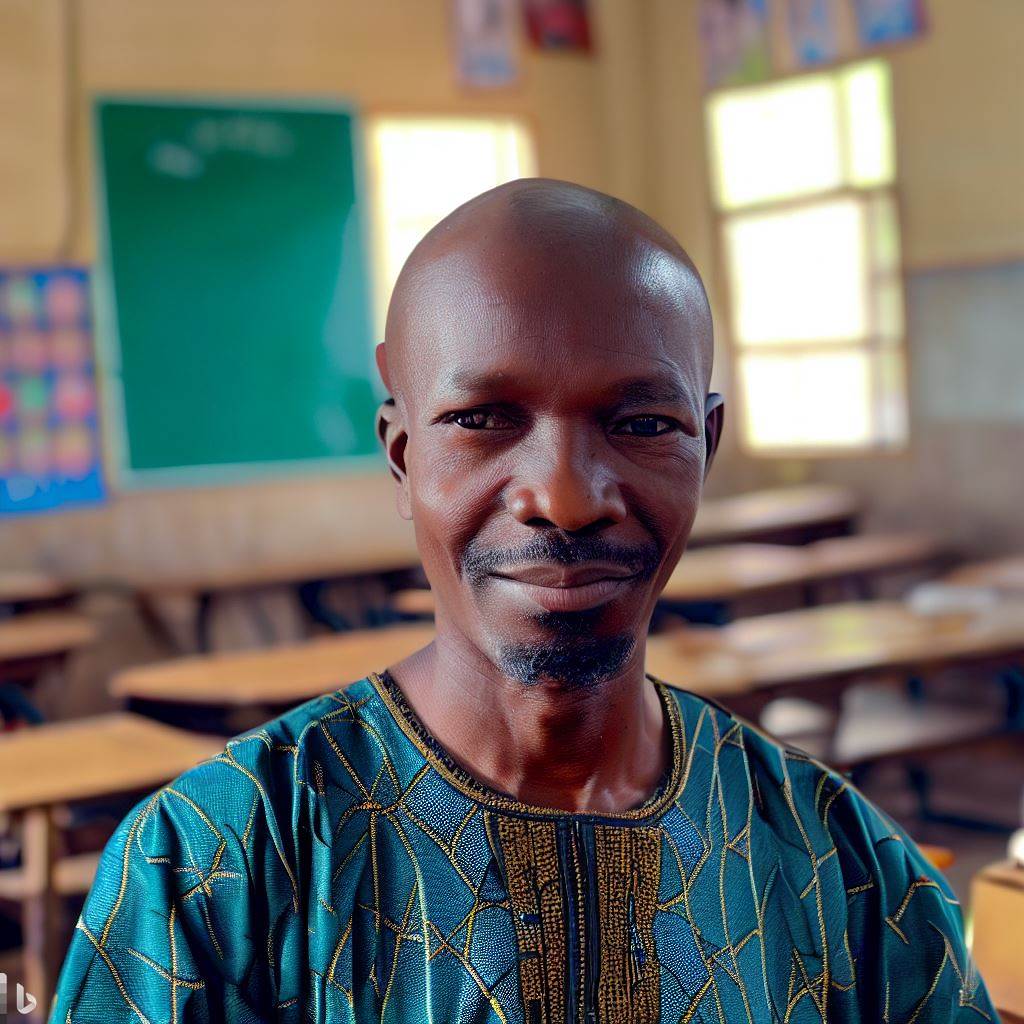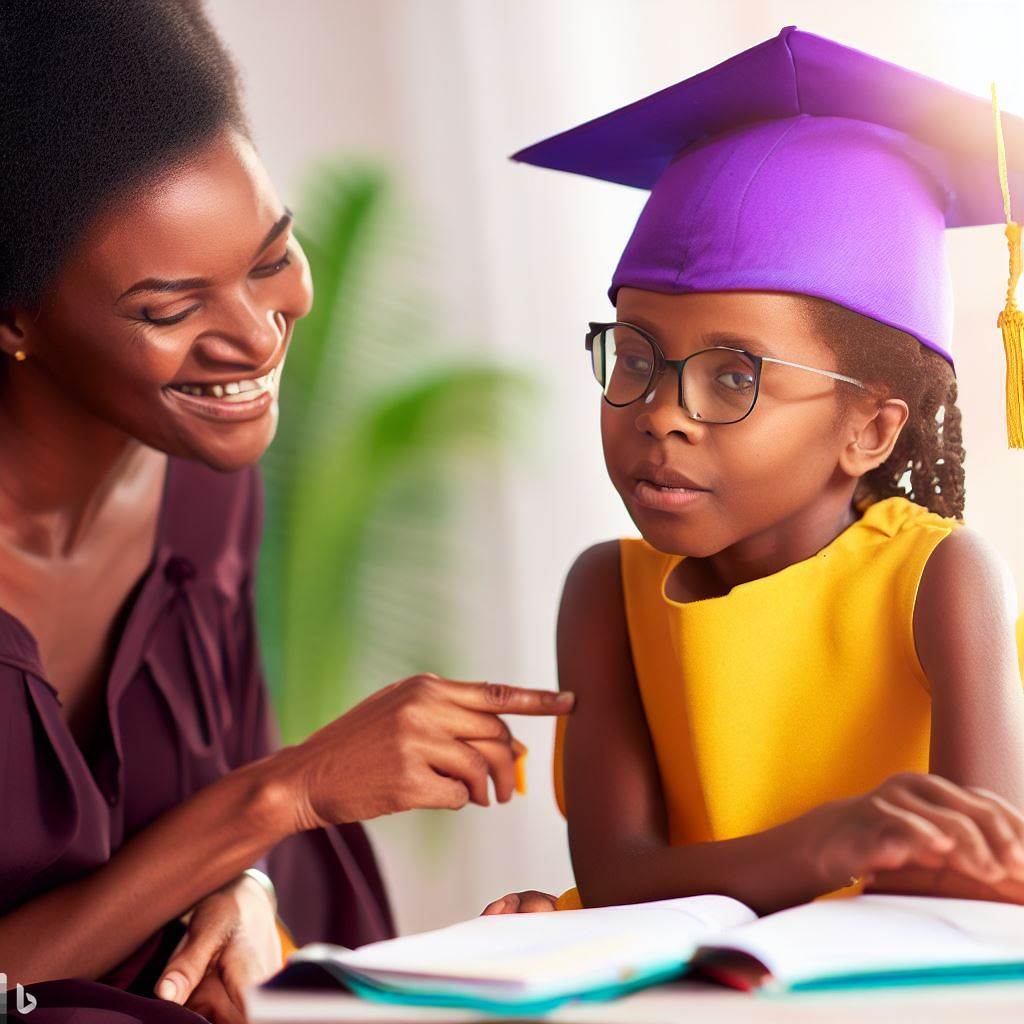Introduction
Special education in Nigeria faces unique challenges due to its cultural context.
With over 250 ethnic groups and diverse cultural beliefs, Nigeria’s cultural diversity greatly impacts the provision of special education services.
Cultural factors such as superstitions, stigmatization, and traditional beliefs about disabilities shape the implementation of special education policies and practices.
Nigeria’s cultural diversity also affects the availability and accessibility of special education resources and services.
In some communities, disabilities are viewed as a result of spiritual possession or curses, leading to exclusion and marginalization.
This cultural belief limits the acceptance and integration of special needs individuals within the society, hindering their access to quality education and support.
Furthermore, traditional gender roles and societal expectations influence the educational opportunities for children with disabilities.
In patriarchal communities, girls are often disadvantaged and face additional barriers in accessing special education services.
Cultural norms and gender biases perpetuate discrimination and limit the potential for inclusive educational practices.
Therefore, understanding the influence of culture on special education in Nigeria is crucial for developing effective strategies to promote inclusivity and equal opportunities.
By recognizing cultural beliefs and practices, policymakers, educators, and communities can address the barriers that hinder the provision of special education services.
Collaborative efforts between government agencies, NGOs, and community leaders can ensure culturally sensitive practices in special education and promote an inclusive educational environment for all.
Understanding Nigerian Culture
Overview of Nigeria’s diverse cultural landscape
Nigeria is a country with a rich and diverse cultural heritage. It is home to over 250 ethnic groups, each with its own unique traditions and practices.
This cultural diversity is reflected in the different languages, art forms, and cuisines found in Nigeria.
Nigerian culture is influenced by both indigenous traditions and external factors such as colonialism and globalization.
Transform Your Career in Nigeria
Discover unmatched expertise with our personalized Career Consulting service. Navigate Nigeria’s job market with a strategy tailored just for you.
Get StartedInfluence of language, religion, and traditional beliefs on special education
Language plays a crucial role in shaping education and communication in Nigeria. The official language, English, is used in schools, but many Nigerians also speak their native languages.
In special education, language barriers can hinder effective learning and inclusion of students with disabilities. Religion is another important aspect of Nigerian culture that impacts special education.
Religious beliefs and practices may influence how disabilities are perceived and treated within a community.
Traditional beliefs and superstitions can also play a role in shaping attitudes towards disabilities and special education.
Importance of considering cultural norms and values in special education practices
- Understanding and respecting cultural norms and values is essential for providing effective special education.
- Cultural practices and beliefs should be taken into account when designing inclusive education programs.
- Educators and policymakers need to collaborate with local communities to develop culturally sensitive strategies.
- By incorporating cultural perspectives, special education can become more relevant and meaningful to students.
- Addressing cultural barriers can promote equal access to education and improve outcomes for students with disabilities.
In the end, Nigerian culture has a significant impact on special education in the country.
The diverse cultural landscape, influenced by language, religion, and traditional beliefs, shapes the provision of special education services.
Understanding and incorporating cultural norms and values is essential for promoting inclusivity and improving outcomes for students with disabilities.
By embracing the rich cultural heritage of Nigeria, special education practices can become more effective and relevant to the needs of the students.
Read: Special Education Legislation and Policies in Nigeria
Cultural Barriers to Special Education in Nigeria
In Nigeria, cultural barriers pose significant challenges to the implementation of special education programs.
These barriers range from societal stigma and misconceptions about disabilities to limited access to resources and discrimination.
Stigma surrounding disabilities and misconceptions
One of the main cultural barriers in Nigeria is the stigma attached to disabilities. Many Nigerians view disabilities as a curse or punishment, leading to social marginalization.
This stigma prevents children with disabilities from accessing special education services and support.
Additionally, there are numerous misconceptions surrounding disabilities, such as the belief that they are contagious or cannot be improved through education.
Lack of awareness and understanding among communities
Another cultural barrier is the lack of awareness and understanding among communities. Many Nigerians have limited knowledge of disabilities and the importance of special education.
This lack of awareness often leads to the exclusion of children with disabilities from educational opportunities.
It is essential to raise awareness and educate communities about disabilities to break down these barriers.
Limited access to educational resources and support
Nigeria faces significant challenges in providing adequate educational resources and support for special education.
The lack of infrastructure, inclusive teaching materials, and trained professionals make it difficult for children with disabilities to access quality education.
Additionally, there is a scarcity of specialized schools and inclusive classrooms, limiting the options available to children with disabilities.
Cultural biases and discrimination affecting educational opportunities
Cultural biases and discrimination against individuals with disabilities also hinder their educational opportunities.
Nigeria’s cultural norms prioritize the education of non-disabled children, often leaving those with disabilities behind.
Discrimination can manifest in various ways, including exclusion from regular schools, neglecting to provide reasonable accommodations, and limited employment prospects in the future.
These biases need to be addressed to ensure equal access to education for all children, regardless of their disabilities.
Publish Your Professional Profile, Business or Brand
Showcase your expertise, gain trust, and boost visibility instantly on Professions.ng.
Publish NowIn fact, Nigeria faces various cultural barriers to the effective implementation of special education programs.
Addressing these barriers requires challenging societal stigmas surrounding disabilities, increasing awareness and understanding among communities, improving access to educational resources and support, and combating cultural biases and discrimination.
By actively working to overcome these barriers, Nigeria can provide inclusive and quality education for all children, irrespective of their abilities.
Read: Opportunities for Special Education Teachers in Nigeria
Cultural Factors Shaping Special Education in Nigeria
Importance of community involvement and family support
One of the key factors shaping special education in Nigeria is the importance of community involvement and family support.
Nigerian culture places a high value on communal relationships and support networks, and this extends to the education of children with special needs.
Community involvement is crucial in providing the necessary resources and support for these students.
In Nigeria, it is common for families to actively participate in the education process of their children with special needs.
They play an active role in advocating for their child’s educational rights, ensuring they have access to appropriate support services, and fostering a positive learning environment.
This collaboration between families and educators greatly enhances the overall educational experience for these students.
Integration of cultural practices in special education curriculum
Another cultural factor that shapes special education in Nigeria is the integration of cultural practices in the curriculum.
Nigerian culture is diverse and rich, encompassing various customs, traditions, and languages.
Incorporating these cultural elements into the special education curriculum helps foster a sense of identity, belonging, and pride among students with special needs.
By integrating cultural practices, educators can create a more inclusive and engaging learning environment, where students can relate to the content and feel valued for their cultural heritage.
This not only enhances their sense of self-worth but also promotes a more holistic and culturally responsive approach to education.
Role of cultural sensitivity in effective teaching strategies
Cultural sensitivity plays a crucial role in effective teaching strategies for students with special needs in Nigeria.
Educators must demonstrate an understanding and appreciation for the cultural backgrounds of their students.
This involves acknowledging and respecting cultural norms, values, and beliefs, and adapting teaching methods to meet the unique needs of each student.
By being culturally sensitive, educators can establish a positive and supportive learning environment, where students feel safe to express themselves and engage actively in the learning process.
This approach promotes better learning outcomes and improves the social and emotional well-being of students with special needs.
Emphasis on inclusive education and maximizing cultural diversity
Finally, there is an increasing emphasis on inclusive education and maximizing cultural diversity in Nigeria’s special education system.
The education sector recognizes the importance of providing equal opportunities for all students, regardless of their abilities or cultural backgrounds.
This focus on inclusivity and diversity aims to create a society that values and celebrates differences, fostering a more accepting and inclusive society for individuals with special needs.
It encourages the integration of students with special needs into mainstream classrooms, promoting interaction and understanding between children of different abilities and cultural backgrounds.
In general, cultural factors significantly shape special education in Nigeria.
The importance of community involvement and family support, integration of cultural practices in the curriculum, role of cultural sensitivity in teaching strategies, and emphasis on inclusive education all contribute to a more inclusive and empowering educational experience for students with special needs in Nigeria.
Read: The Role of a Special Education Teacher in Nigeria

Initiatives and Progress in Nigerian Special Education
Key government policies and interventions
- The Nigerian government has implemented various policies to improve special education.
- In 1993, the National Policy on Education recognized the need for inclusive education.
- The Education for All (EFA) program aimed to provide access to quality education for all children.
- The Universal Basic Education Act of 2004 promoted inclusive education in Nigeria.
- The National Disability Act of 2018 further protected the rights of disabled individuals.
Collaborative efforts between NGOs, schools, and communities
- Non-governmental organizations (NGOs) play a crucial role in advancing special education in Nigeria.
- NGOs like Special Education Support Initiative (SESI) work with schools to improve inclusive practices.
- Collaborations between NGOs, schools, and communities have led to sharing of resources and expertise.
- These partnerships have helped in developing inclusive curriculum and providing teacher training.
- Community involvement has increased awareness and acceptance of children with disabilities.
Success stories and impactful initiatives
- The Inclusive Education Program by UNICEF has made significant strides in promoting inclusive practices.
- Special schools have implemented individualized education plans (IEPs) for children with disabilities.
- The introduction of assistive technologies has improved learning opportunities for students.
- Sensitization campaigns have raised awareness and reduced discrimination against children with disabilities.
- Inclusion of special needs students in mainstream schools has shown positive outcomes.
Read: Insights into the Teaching Profession in Nigeria Today
Ongoing challenges and the need for continued progress
- Despite progress, Nigeria still faces challenges in achieving comprehensive inclusive education.
- Limited funding and resources hinder the implementation of inclusive education practices.
- A shortage of special education teachers and professionals limits support for students with disabilities.
- Attitudinal barriers and stigma against disability persist in Nigerian society.
- Government and stakeholders need to prioritize special education and ensure sustained efforts for progress.
Read: Understanding the Nigerian Special Education Curriculum
Recommendations for Improving Cultural Inclusivity in Special Education
Increasing cultural awareness among educators and stakeholders
- Implement mandatory cultural sensitivity training for all educators and professionals in the field of special education.
- Encourage dialogue and open discussions among educators to address cultural biases and misconceptions.
- Provide resources and materials that promote cultural understanding and appreciation in special education settings.
- Foster a collaborative environment where educators can learn from each other’s experiences and perspectives.
Enhancing training and professional development programs
- Develop specialized training programs that focus on cultural inclusivity in special education.
- Offer continuous professional development opportunities that keep educators updated on cultural practices and beliefs.
- Incorporate case studies and real-life scenarios that highlight the impact of culture on special education.
- Provide mentoring programs where experienced educators can guide and support new professionals in navigating cultural challenges.
Strengthening partnerships between schools, families, and communities
- Foster strong relationships between schools and families to create a supportive and inclusive network.
- Involve families in the decision-making process regarding their child’s special education program.
- Collaborate with community organizations and leaders to understand the cultural needs and values of the students.
- Establish regular communication channels to address cultural concerns and promote meaningful engagement.
Supporting and encouraging research on culture and special education
- Allocate funding and resources for research projects that investigate the impact of culture on special education in Nigeria.
- Encourage educators and researchers to share their findings and insights through conferences and publications.
- Create a platform for collaborative research between academia, special education professionals, and cultural experts.
- Use research outcomes to inform policy development and improve cultural inclusivity in special education practices.
All in all, improving cultural inclusivity in special education requires a multifaceted approach.
By increasing cultural awareness among educators, enhancing training programs, strengthening partnerships with families and communities, and supporting research, Nigeria can create a more inclusive and equitable special education system.
It is crucial to recognize the importance of culture in shaping educational practices and to strive for cultural competence in providing educational services to all students.
Read: A Comprehensive Overview of Special Education in Nigeria
Conclusion
In this post, we have explored the impact of culture on special education in Nigeria.
We have discussed how cultural beliefs and practices can shape the attitudes towards disability, access to education, and the provision of support services for children with special needs.
It is evident that culture plays a significant role in influencing the way special education is perceived and implemented in Nigeria.
Cultural norms, such as stigma and discrimination, can create barriers to inclusive education and hinder the progress of children with special needs.
It is crucial for Nigeria to foster a more inclusive and culturally sensitive special education system.
This can be achieved by promoting awareness and understanding of disabilities within the Nigerian society, training educators to be culturally competent, and providing resources and support for children with special needs.
By doing so, we can create an environment that embraces diversity and ensures that every child has equal access to quality education and opportunities for growth.
Publish Your Professional Profile, Business or Brand
Showcase your expertise, gain trust, and boost visibility instantly on Professions.ng.
Publish Now



